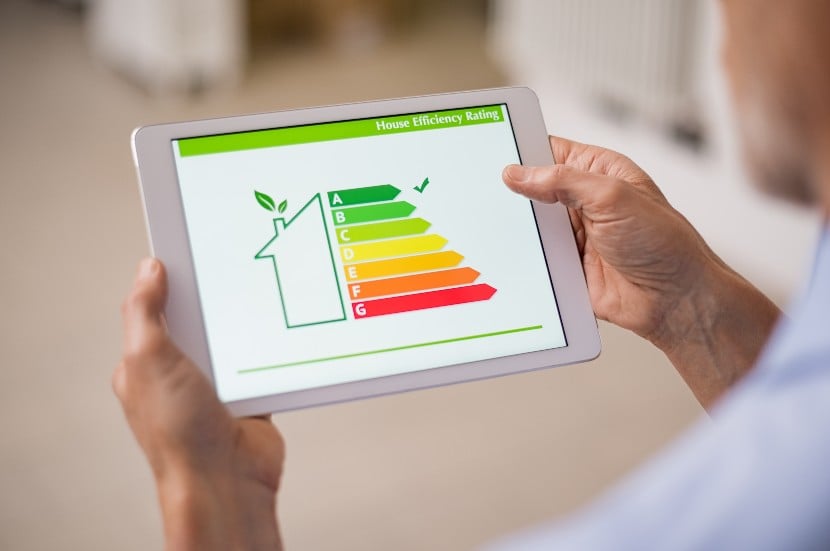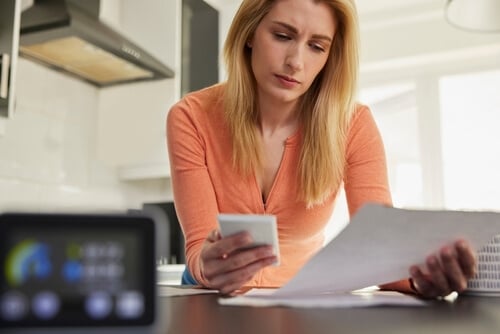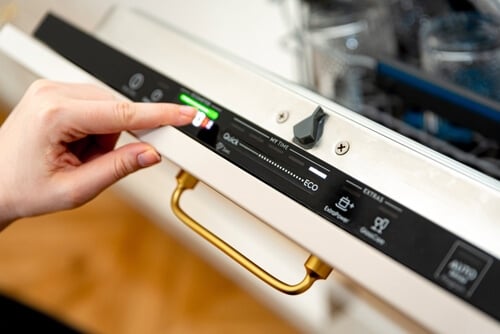There’s so much to do when relocating that it’s easy to overlook such essential details as sorting out your gas and electricity. But the last thing you want is to not have your energy supply in place when you move to your new home.

Switching energy providers
If you're looking for certainty on your energy bills, compare energy deals to see fixed deals that are currently available.
What to do before you move house
There are several things you can do to ensure you’re prepared for your first new energy bill. You should:
1. Notify your current energy supplier
- Call your existing energy supplier at least 48 hours before you move out to let it know the date of your move, as well as the address you’re moving to, so it can send your final bill.
- Your energy supplier will either arrange a meter reading for you or ask you to take one on the day of your move. You can find your supplier's contact details on your bill or online.
2. Check your energy account
- Are you in credit or do you owe money to your supplier? By checking now, you know what to expect and can budget for it. With all the costs of moving it can be easy to miss a substantial bill that might be coming your way.
3. Take a meter reading on the day that you move out
- Even if you have a smart meter, take meter readings from your gas and electricity meters and make a note of them (or take a photo on your phone).
- Leave a copy of the meter readings for the next owners, tenants or your landlord, along with details of the energy supplier(s) you use.
- Submit the meter readings to your energy supplier either online, through your app or over the phone, so everyone has a record.
4. Speak to the other party
- It’s worth asking the people currently living in the property how much they typically pay each month or quarter. You could also ask how much energy they use over the same period - it should be on their bill. This could give you an indication of whether you’re likely to be paying more or less for your energy.
What to do when you move into your new home
There’s a lot to think about when you get the keys to your new home, but sorting out your energy is always going to be one of them. Here are some tasks that shouldn’t be put off.
1. Take gas and electricity readings on moving day
- Take fresh gas and electricity meter readings when you move into your new home as soon as possible. Ideally the previous occupants will have left readings, but always take your own to avoid issues later.
- This will ensure that you only pay for the gas and electricity you use, and not energy used by the previous occupants.
- Check the heating and hot water timers and the thermostat. The previous inhabitants might have been using more energy than necessary.
2. Find out who your new energy supplier is
Hopefully this information has been supplied but if it hasn’t there are some easy ways to find out.
Find your gas supplier
To find your gas supplier visit the Find My Supplier website and enter your postcode. Alternatively, call the Meter Number Helpline on 0870 608 1524 (calls cost 7p per minute plus your phone company's access charge). Be sure to get the Meter Point Reference Number assigned to your property.
Find your electricity supplier
To find your electricity supplier you can use the Energy Networks Association postcode search tool to locate the provider servicing your area. It should be one of the following:
- London, South East and Eastern England: 0800 029 4285
- Southern England: 0800 048 3516
- South West England: 0845 601 2989
- North West England: 0800 048 1820
- Merseyside, Cheshire, North Shropshire and North Wales: 0330 101 0444
- Yorkshire: 0800 011 3332
- North East England: 0845 070 7172
- South Wales, West & East Midlands: 0800 096 3080
- Central and Southern Scotland: 0330 101 0444
- Northern Scotland: 0800 048 3516
- Northern Ireland: 03457 643 643
You could also contact MPAS (the Meter Point Administration Service). MPAS should confirm who’s registered to supply electricity to your home and issue you a 21-digit Meter Point Administration number. You can use this when enquiring about your energy.
3. Give your energy supplier the meter readings
Once you’ve established who provides your gas and electricity, contact the suppliers to set up your account. You need to confirm the date you moved into the property and pass on the meter readings for this date. This will ensure you only pay for energy you’ve used.
Can I compare gas and electricity deals in my new home?
There are fixed deals from a range of suppliers available for customers to sign up to. They will save money against the price cap, but as always, the energy market is unpredictable so consider your options carefully before signing up.
It’s always worth running an energy comparison. All you need is your address and potentially a couple of details about your tariff to see what’s currently available.
Can I keep my energy tariff if I move house?
If you’re on a fixed deal, your supplier may allow you to move your energy tariff to your new home if you wish to do so. However, if you’re moving to a different part of the country, your rate may change slightly because they differ by region.
Can I switch my energy supplier if I rent?
Whether you can change your energy supplier depends on who pays the bills. If you’re responsible for this, then yes you can. If your landlord pays them, they can change suppliers. This doesn’t stop you looking for deals to tell your landlord about.
If you’re not sure who's responsible for the gas and electricity, check your tenancy agreement. It’s worth noting if your landlord has a preferred supplier. This doesn't prevent you from switching if you’re paying the energy bill, but you should tell your landlord or letting agent if you change supplier. This is because you may have to arrange for the account to revert to the original supplier when you move out.
What should I do if my new home has a prepayment meter?
If there’s a prepayment meter at your new home, you need to arrange for a new top up key or card to be sent out for when you move in. You may not need a prepayment meter, in which case you can have it changed to a credit meter. Be aware that your supplier usually won’t switch you to a credit meter if you’re in debt to it, though.
You can find out more about prepayment meters in our guide on how to pay your energy bill.
What if my new home has an Economy 7 meter?
If your new home has an Economy 7 meter (i.e. a meter that offers cheaper rates during seven “off-peak” night-time hours) then you may wish to keep it. Alternatively, you can switch to a deal that doesn’t offer Economy 7 rates if you feel it would better suit your lifestyle.
What if I’m struggling to pay my energy bills?
The cost-of-living crisis is affecting everyone, meaning a lot of us are having to juggle our finances right now. If you’re struggling to pay your energy bills, get in contact with your energy company and explain your situation - it should be able to help.
For more on what to do if you’re struggling to pay your energy bills visit Citizens Advice, GOV.UK and Ofgem.
What if I’m moving to a new business premises?
As with a domestic arrangement, when you move business premises either:
- Your energy contracts move with you or;
- Your existing energy tariffs end and you need to set up new ones.
Either way, you don’t want to leave making a decision on how your new workplace will be heated and powered until the last minute. In many cases, you aren't able to operate without your energy supply.
The best course of action is to let your energy supplier know that you’re moving about a month in advance. Ensure you have the following information to hand when you contact them, and on the day of the move:
- Your business address.
- Your account and meter numbers.
- Your final meter readings and the date they were noted.
- The date your lease or ownership of the property ended.
- The full address of your new business premises.
You can ask your energy providers to bill you at your home address if you prefer, but they need your workplace address in any case. The meter readings at your new business premises on the day you take up occupancy.
Top tip: Don’t assume your landlord will cover the energy bills if you’re renting your business premises. Check your tenancy agreement and even if you’re not responsible for the gas and electricity make a note of the meter reading. Even better, take a photo of the meter to retain as proof should there be a dispute over who owes what.







